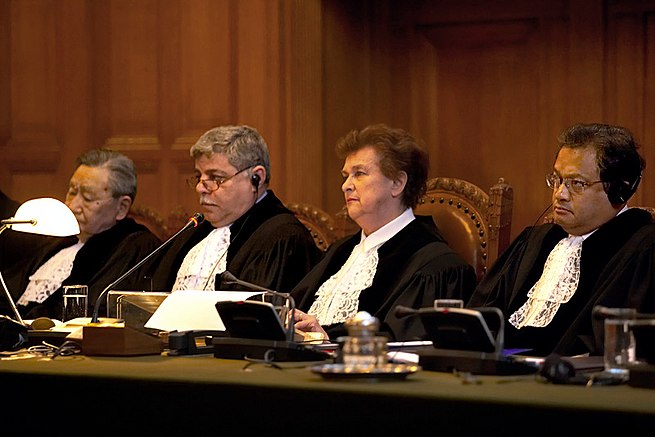
Main Difference
The main difference between Judge and Justice is that the Judge is a official who presides over court proceedings and Justice is a concept of moral fairness and administration of the law
-
Judge
A judge is a person who presides over court proceedings, either alone or as a part of a panel of judges. The powers, functions, method of appointment, discipline, and training of judges vary widely across different jurisdictions. The judge is supposed to conduct the trial impartially and, typically, in an open court. The judge hears all the witnesses and any other evidence presented by the barristers of the case, assesses the credibility and arguments of the parties, and then issues a ruling on the matter at hand based on his or her interpretation of the law and his or her own personal judgment. In some jurisdictions, the judge’s powers may be shared with a jury. In inquisitorial systems of criminal investigation, a judge might also be an examining magistrate.
-
Justice
Justice is the legal or philosophical theory by which fairness is administered. The concept of justice differs in every culture. An early theory of justice was set out by the Ancient Greek philosopher Plato in his work The Republic. Advocates of divine command theory argue that justice issues from God. In the 17th century, theorists like John Locke argued for the theory of natural law. Thinkers in the social contract tradition argued that justice is derived from the mutual agreement of everyone concerned. In the 19th century, utilitarian thinkers including John Stuart Mill argued that justice is what has the best consequences. Theories of distributive justice concern what is distributed, between whom they are to be distributed, and what is the proper distribution. Egalitarians argued that justice can only exist within the coordinates of equality. John Rawls used a social contract argument to show that justice, and especially distributive justice, is a form of fairness. Property rights theorists (like Robert Nozick) take a deontological view of distributive justice and argue that property rights-based justice maximizes the overall wealth of an economic system. Theories of retributive justice are concerned with punishment for wrongdoing. Restorative justice (also sometimes called “reparative justice”) is an approach to justice that focuses on restoring what is good, and necessarily focuses on the needs of victims and offenders.
-
Judge (noun)
A public official whose duty it is to administer the law, especially by presiding over trials and rendering judgments; a justice.
-
Judge (noun)
A person who decides the fate of someone or something that has been called into question.
-
Judge (noun)
A person officiating at a sports event or similar.
“At a boxing match, the decision of the judges is final.”
-
Judge (noun)
A person who evaluates something or forms an opinion.
“She is a good judge of wine.”
“They say he is a poor judge of character considering all the unreliable friends he has made.”
-
Judge (verb)
To sit in judgment on; to pass sentence on.
“A higher power will judge you after you are dead.”
-
Judge (verb)
To sit in judgment, to act as judge.
“Justices in this country judge without appeal.”
-
Judge (verb)
To form an opinion on.
“I judge a man’s character by the cut of his suit.”
-
Judge (verb)
To arbitrate; to pass opinion on something, especially to settle a dispute etc.
“We cannot both be right: you must judge between us.”
-
Judge (verb)
To have as an opinion; to consider, suppose.
“I judge it safe to leave the house once again.”
-
Judge (verb)
To form an opinion; to infer.
“I judge from the sky that it might rain later.”
-
Judge (verb)
To criticize or label another person or thing.
-
Justice (noun)
The state or characteristic of being just or fair.
“the justice of a description”
-
Justice (noun)
The ideal of fairness, impartiality, etc., especially with regard to the punishment of wrongdoing.
“Justice was served.”
-
Justice (noun)
Judgment and punishment of a party who has allegedly wronged another.
“to demand justice”
-
Justice (noun)
The civil power dealing with law.
“Ministry of Justice”
“the justice system”
-
Justice (noun)
A title given to judges of certain courts; capitalized as a title.
“Mr. Justice Krever presides over the appellate court”
-
Justice (noun)
Correctness, conforming to reality or rules.
